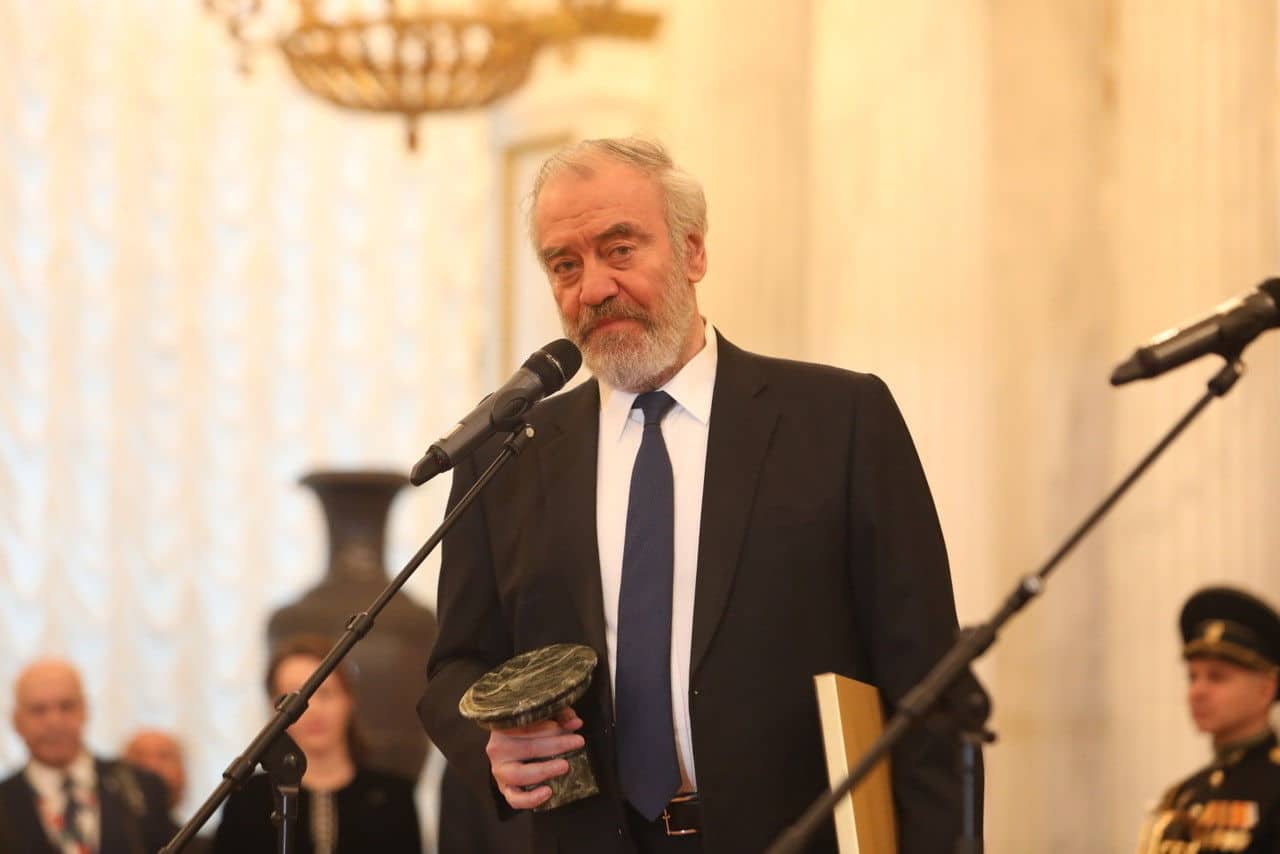Why are conductors being signed up for ever?
OrchestrasSomething has shifted this year in the international podium.
Music directors, normally signed for 3-5 years and extended for another three, are being offered golden handcuffs to stay well into the next decade.
Gustavo Dudamel will start at the NY Philharmonic in 2026 on a five year contract that will have been extended before he begins, taking him into the mid-2030s.
Klaus Mäkelä will join the Concertgebouw in 2027 on a five-year deal with instant renewal option.
Lahav Shani will join the Munich Philharmonic on the same terms.
Alan Gilbert has been renewed by the Elbphilharmonie in Hamburg to the end of the decade.
You can read this trend two ways.
Either orchestras are so thrilled with their glittering prize they want to hold it close forever.
Or there has been such a collapse in condcuting confidence that only the best-known names can command longterm security.
Either way, the wind has shifted






Stokowski, 26 years in Philadelphia; Karajan, 34 years in Berlin; Stock, 37 years in Chicago; Szell, 24 years in Cleveland; Mengelberg, 50 years in Amsterdam.
Ormandy, 44 years in Philly?
So, basically just a handful of names in the last hundred years.
Abravanel 32 years in Utah.
Those were the days, my friend, we thought they’d never end….
Dutoit – 24 years in Montreal; Solti – 22 years in Chicago; Ozawa, 28 years in Boston. Gerry Schwarz – 28 years in Seattle. Michelle Plasson – 35 years in Toulouse; MTT – 25 years in San Francisco
Haitink – 25+ years at Concertgebouw.
Sir Alexander Gibson – 25 years Scottish National
Sir John Barbirolli, 27 years Hallé Orchestra
Ernest Ansermet, 49 years Orchestre de la Suisse Romande
Yevgeny Mravinsky, 50 years Leningrad Philharmonic
Very interesting finding. Thank you. I wonder if it all goes back to “security.”
From an orchestra’s point of view: A bird in the hand is worth two in the bush. I don’t know, but the process of finding and contracting a conductor seems to be a gut-wrenching experience for all involved. So part of “security” might be to reduce the frequency of that experience.
From the young conductor’s perspective: If you get a good posting, grab it and hold it tight. “Security,” yes, but cave: don’t commit for too long, as you and the organization will evolve over time…and will you then still fit together?
From the experienced conductor’s stance: Perhaps a need to travel less overall and more predictably? Jetting around has indeed become insane, tiring, and tedious. And there are pressures in Europe, at least, to reduce carbon foot prints… This kind of “security” might offer a better work/life balance? Longer contracts should also enable – if not guarantee – the conductor and ensemble to work ever closer together, learning, growing, excelling. Think of the 16 years Jansons and the Bavarians had together.
Sunday musings. Interesting topic.
Let’s see what the future brings.
Arty Fiedler—50 years in Boston pops.
Simple: the business follows the demand reality of the media and the audiences: narcissism is the new normal, established marketable brand name conductors secure media interest and ticket sales.
Music is a hostage and commodity in that market, not the goal.
Very well put. The media will ensure they stay in the forefront of public interest for the foreseeable. Win-win for the insiders.
I think they want to return to the era of Szell in Cleveland, Ormandy in Philadelphia, Brady in New England. The franchise will be better positioned to fashion an identity and build a loyal fan base. Listen to Cleveland under Welser-Most. It still has a distinctive sound and phrasing; only 4 music directors in 77 years! In the same amount of time, NY Phil has had 10.
3-5 years?!! If only! In Cleveland we can’t seem to get rid of FWM. That’s what happens when the powers-that-be don’t have musical backgrounds. They don’t recognize the mediocrity he inflicts on the orchestra and are never around to hear the sublime and inspired performances under the batons of other conductors. Witness recent performances under Mäkelä.
As for Cleveland’s distinctive sound, what’s left of it is wholly in spite of FWM (inside stories regarding that abound BTW). Even their legendary precision has been suffering in recent years. Hmmm, what could be the cause? News of late of all these great conductors being snatched up by other orchestras simply makes my heart ache. We deserve one too!
Robert Trevino’s contract as Music Director of the Basque National Orchestra (Euskadiko) was recently extended indefinitely.
Maybe, the reason is musical. It takes time to build an orchestra into a special instrument with personality all its own while adjusting the orchestra to leader’s personality, manner of conducting. If it takes years to learn how to play an instrument, think how long it takes for a conductor to perfect his technique.
So bands such as the Concertgebouw should accept their destiny as a training orchestra?
Good question, but training Mengelberg, Haitink and, to some extent, Chailly worked quite well for all involved.
If an orchestra is going to spend millions of dollars/euros promoting their maestro that orchestra wants to make sure they’re the ones getting the benefits of that promotion.
Mäkelä will be the face of the Concertgebauw. The Concertgebauw will promote him like crazy and it’s likely his stature will be raised substantially. The Concertgebauw is going to want a return on that investment. They don’t want to be the ones who make Mäkelä into a global superstar and then have him run to another orchestra to cash in on his fame earned at the Concertgebauw.
…ouw!
Given how long it can take to select a new Music Director/Chief Conductor, and that schedules are planned years in advance, short-term contracts really don’t make sense.
I would think that seven years makes the most sense for the first contract term. If you don’t intend to renew the contract, you’ll likely know that by year four, which gives you tons of time to look for a new conductor before you lose the current one.
And how often does a Music Director not work out to the point that they don’t receive that first contract renewal? In the last 20 years United States, has anyone besides Eschenbach and Zweden been given the boot after a single term because management and/or the orchestra wanted them gone? (Off the top of my head, most people seem to make it at least 7 to 9 years, and there are a lot of recently concluded tenures as well as ongoing ones at 15+ years.)
Very good post.
I remember that Eschenbach was imposed on the Philadelphia against their wishes.
But what happened with van Zweden in NY? All I know of is the relentless bashing in this blog, which was also applied to Gilbert (who is now treated with respect) and is already starting with Dudamel—or course.
From what I’ve read it sounds like Klaus’ Mahler 5 in Chicago was pretty crappy. That, and all he did was lean hard I to the first stands of strings. I think it’s pretty clear at this that all he cares about is the strings.
From what you’ve heard? I was there for Saturday night’s performance, and other than a cracked note from the trumpet in the opening solo, it was an incredible performance. I know crowd reaction isn’t always the best way to judge a performance, but there was an immediate, very long standing ovation for the performance, with Mäkelä coming backing out at least 6 times to acknowledge the crowd. He did not just “lean into the first stand of strings.”
What abt the horns?
Is this change significant?
The nominal term may be longer but they almost certainly have exit clauses that make the numbers mostly ceremonial.
It’s shocking to see that most that are being signed up are absolute trash
A shame, most of the conductors who can’t get jobs on the highest level are better than them.
Only worth doing if the conductor is any good. So many musicians have been marketed in such a way, then you never hear of them again. I notice a total absence of any British names.
‘Command longterm security’ – for whose benefit is this chimaera? Your typos aren’t improving, Morman.
For the agent‘s benefit.
All of those “Ormandian” tenure numbers of three decades and more, some of which ended in 1980s and many others even much earlier than that, are not really relevant for the second quarter of this present century, and besides they do not tell us for how long all of those maestros’ initial contracts were, which is probably what NL here is mostly talking about, with the possible exceptions of Alan Gilbert’s renewal and the seemingly unsubstantiated prophesy in the case of the NY Phil.